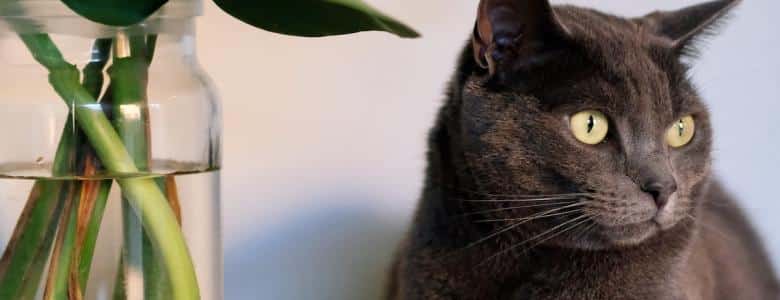Get in touch+44 (0)1725 551124
Get a QuoteGet in touch+44 (0)1725 551124
Get a Quote
There are many extremely common plants that are highly toxic to cats and dogs. Plant poisoning can cause many symptoms ranging all the way from sickness and diarrhoea, to seizures, kidney failure and even death. With that in mind, it’s important to know which plants could cause your pet some serious damage.
Lilies are a particularly popular choice when it comes to flowers. In fact, they were recently revealed to be the UK’s second favourite flower (with roses coming in first). But lilies are highly toxic to cats and coming into contact or ingesting even very small amounts can have some serious consequences. Every single part of the lily from the stamen to the leaves (and even the water in the vase!) is toxic to cats and horses and some kinds are poisonous to dogs too. The most dangerous varieties are ‘true’ lilies like Tiger lilies, Easter lilies and Day lilies. Don’t forget that tulips are part of the lily family too.
Other common bouquet flowers to avoid include marigolds, peonies, irises, sweet peas, poppies and cornflowers. There are several plants that are popular around Christmas time that are worth avoiding if you have pets too, like poinsettia, holly and mistletoe. Even the Christmas tree itself can irritate a pet’s mouth and stomach if ingested.
If you think that your pet has ingested something poisonous, it’s important to contact your vet immediately. Signs that you should look out for include vomiting, diarrhoea, weakness, drooling and loss of appetite. In some cases, skin irritation in the form of blisters, itchiness and rashes can occur from simply brushing up against a plant. It can be helpful to bring a picture of the plant with you to the vets to help speed up the diagnosis.
As always, prevention is better than cure, so try to keep your pet away from any potentially poisonous plants as much as you can. Cats Protection has a detailed list of all the plants that are toxic to cats and a list of plants that are poisonous to dogs can be found on the Dogs Trustwebsite.
Fri Aug 17 2018